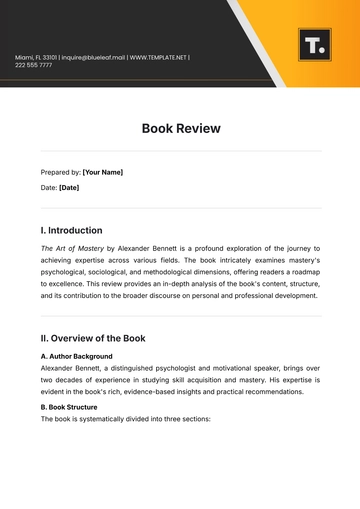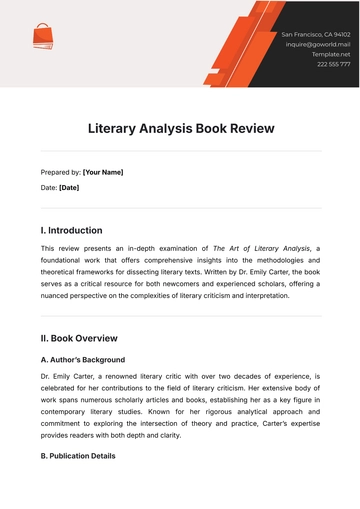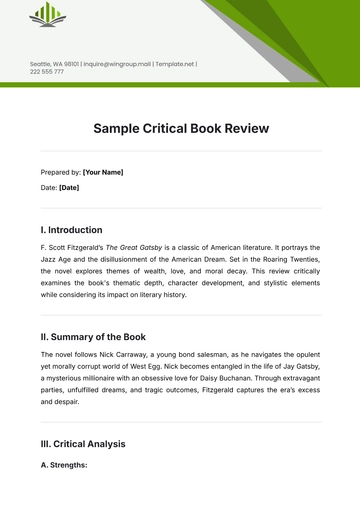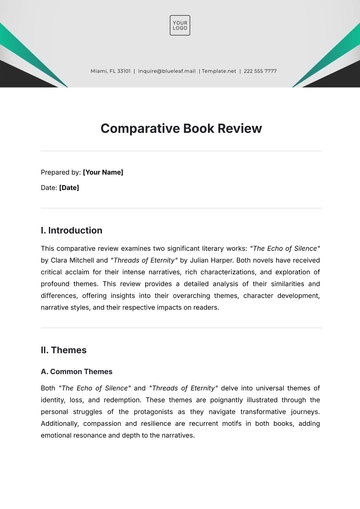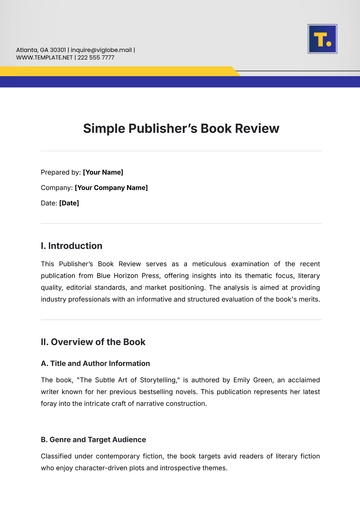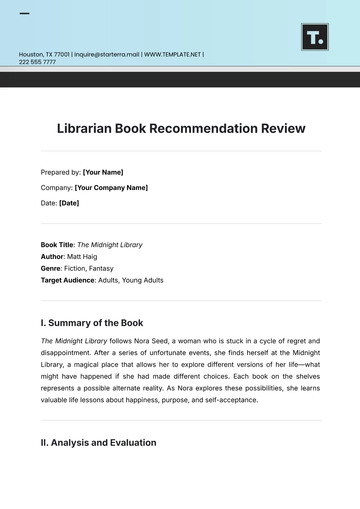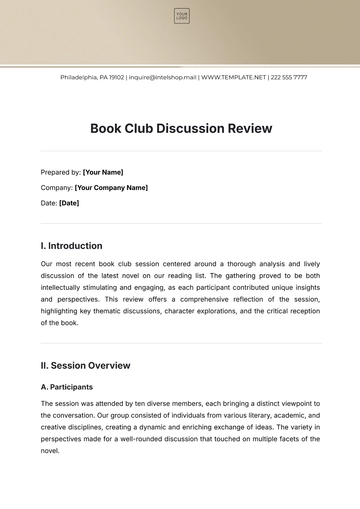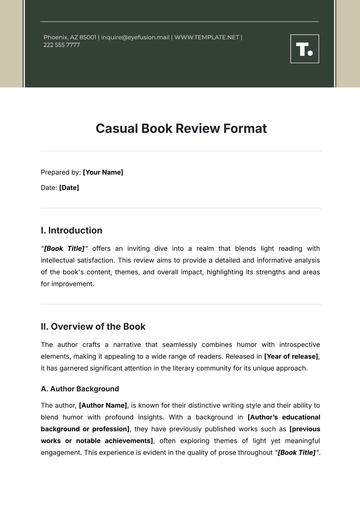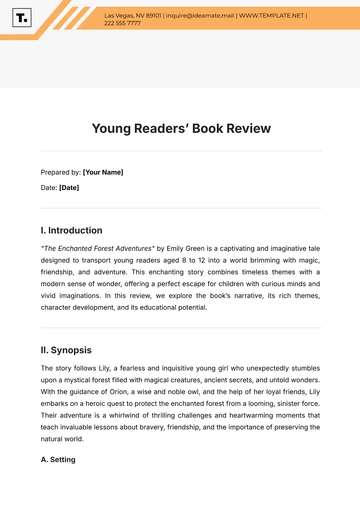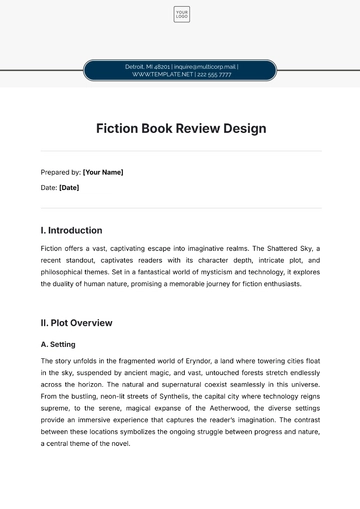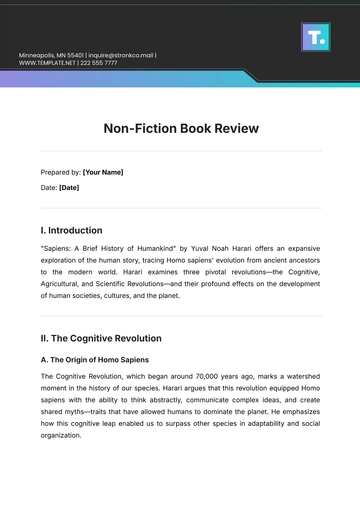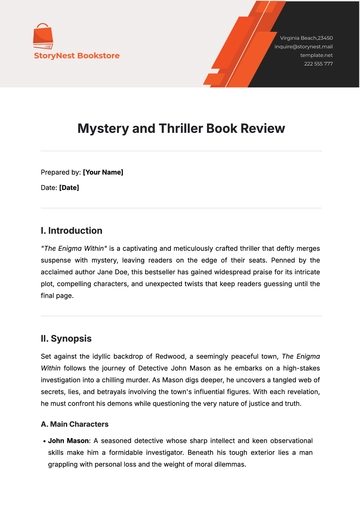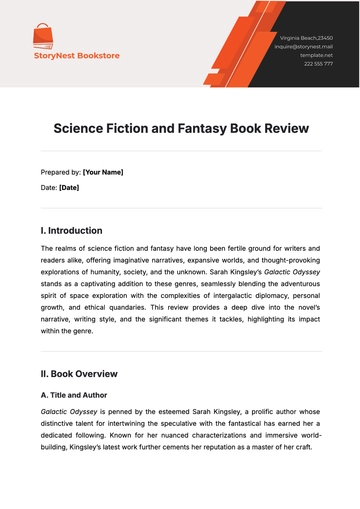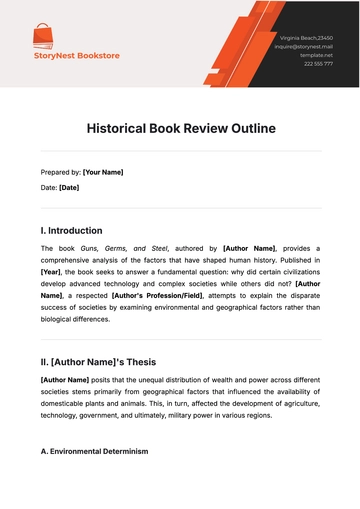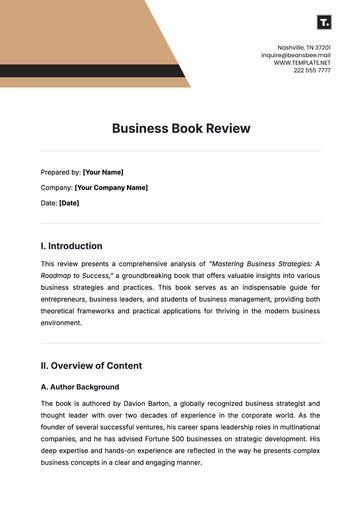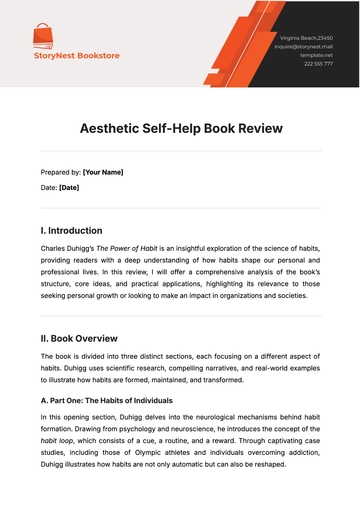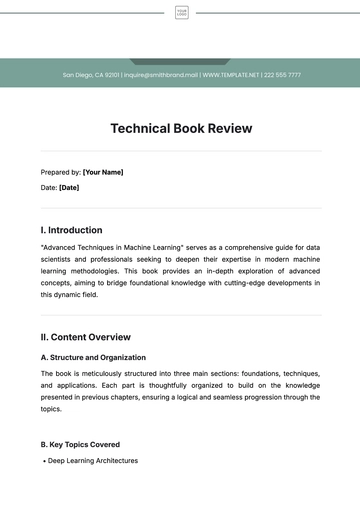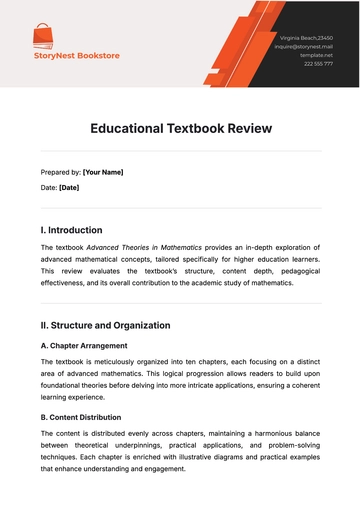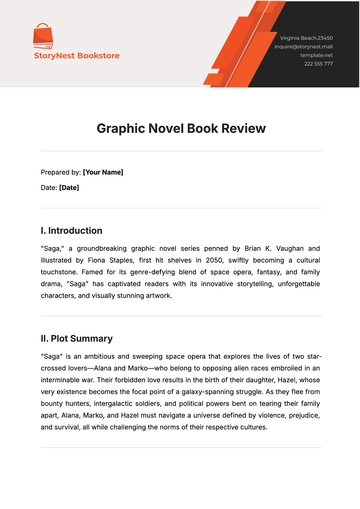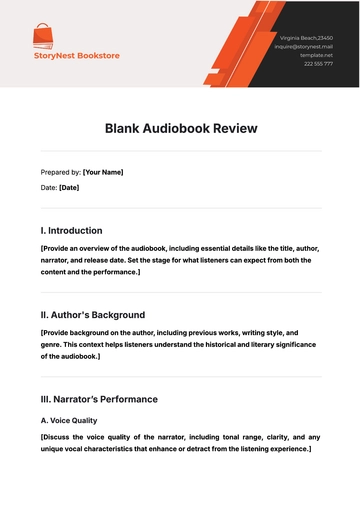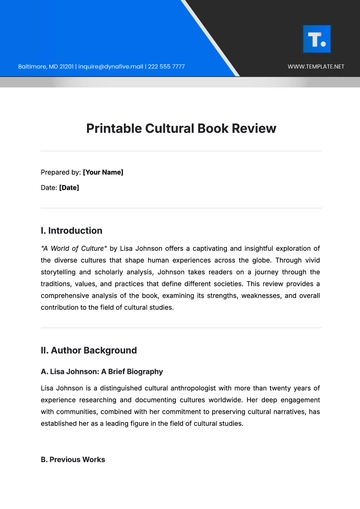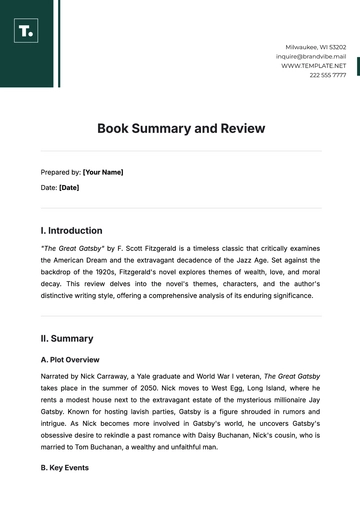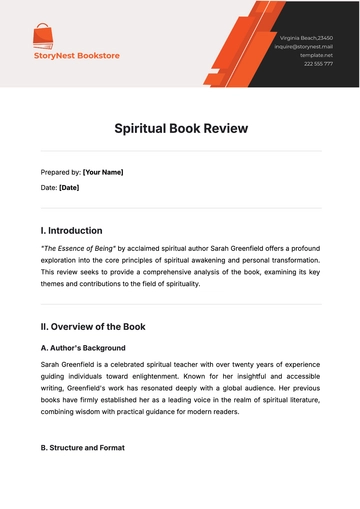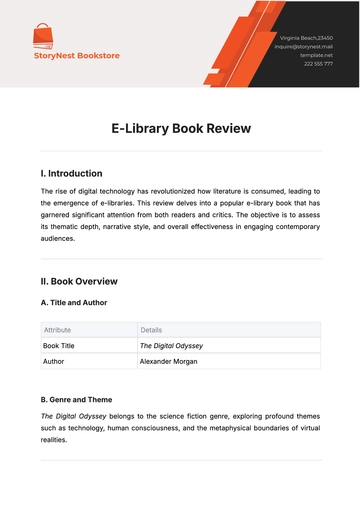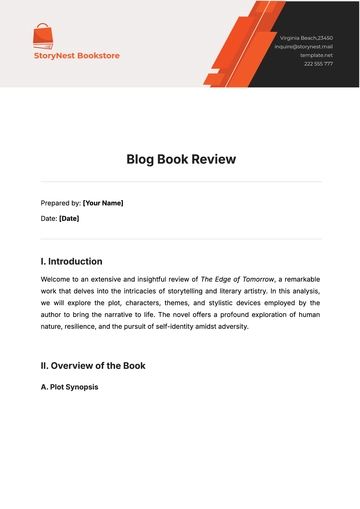Free Non-Fiction Book Review
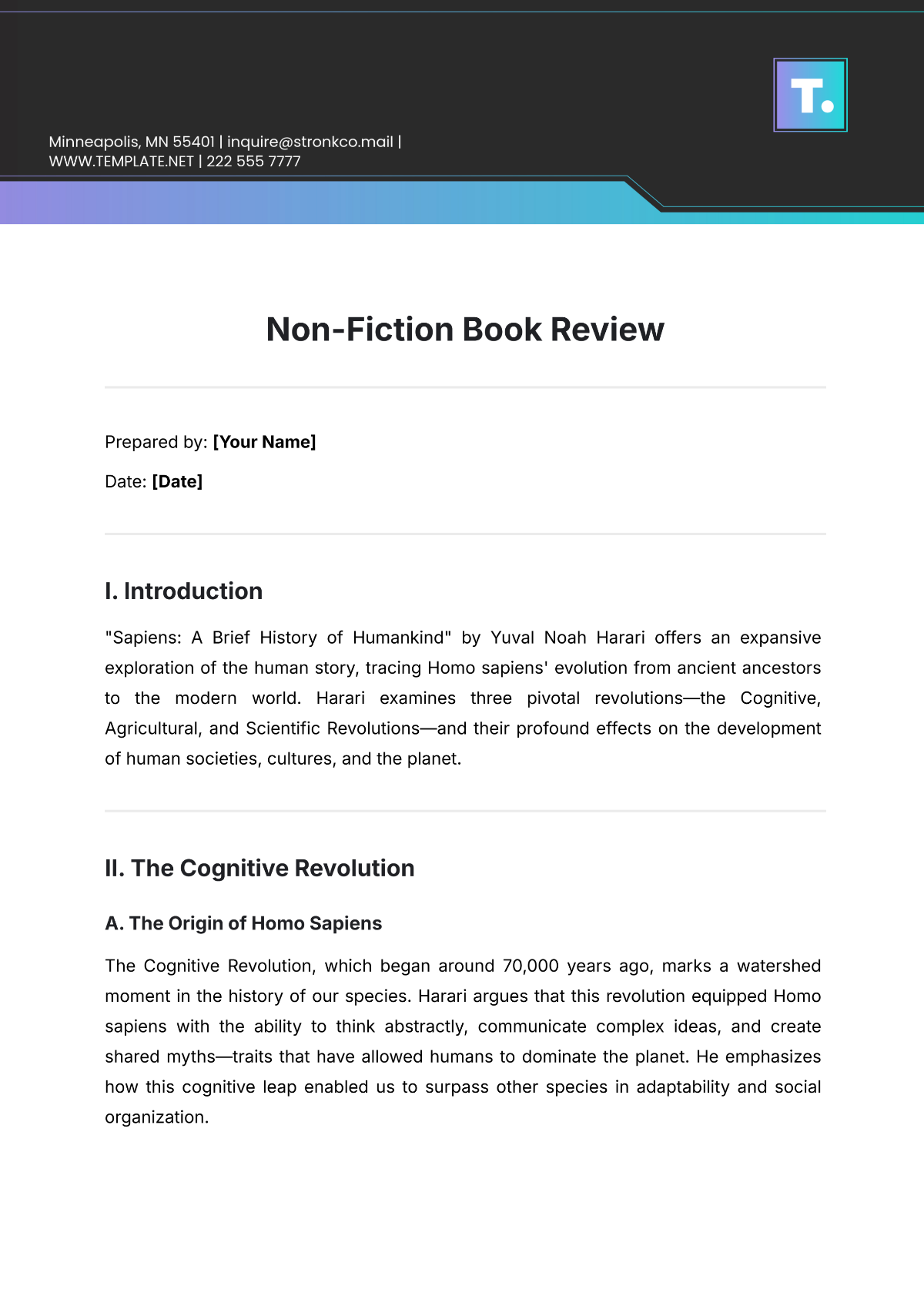
Prepared by: [Your Name]
Date: [Date]
I. Introduction
"Sapiens: A Brief History of Humankind" by Yuval Noah Harari offers an expansive exploration of the human story, tracing Homo sapiens' evolution from ancient ancestors to the modern world. Harari examines three pivotal revolutions—the Cognitive, Agricultural, and Scientific Revolutions—and their profound effects on the development of human societies, cultures, and the planet.
II. The Cognitive Revolution
A. The Origin of Homo Sapiens
The Cognitive Revolution, which began around 70,000 years ago, marks a watershed moment in the history of our species. Harari argues that this revolution equipped Homo sapiens with the ability to think abstractly, communicate complex ideas, and create shared myths—traits that have allowed humans to dominate the planet. He emphasizes how this cognitive leap enabled us to surpass other species in adaptability and social organization.
B. Impact on Society
Harari explores how the Cognitive Revolution reshaped human social structures, laying the foundation for large-scale cooperation. The development of language, myth, and shared beliefs allowed Homo sapiens to form intricate societies, collaborate in ways that no other species could, and build cultures that would eventually span the globe.
III. The Agricultural Revolution
A. Transition from Hunter-Gatherers to Farmers
The Agricultural Revolution, which occurred roughly 12,000 years ago, is portrayed as a transformative yet paradoxical shift. While it enabled the growth of permanent settlements and the rise of civilization, Harari argues that it also led to inequality, social hierarchies, and environmental degradation. He examines how agriculture changed the relationship between humans and nature, forcing people into labor-intensive lives and creating the conditions for surplus, trade, and eventual social stratification.
B. Societal Implications
Harari elaborates on the long-term consequences of the Agricultural Revolution, which gave rise to cities, states, and empires. While agricultural productivity allowed societies to thrive and expand, it also entrenched class divisions, led to warfare over resources, and imposed burdens on the environment, setting the stage for many of the challenges humans face today.
IV. The Unification of Humankind
The Role of Money, Empires, and Religion
Harari identifies three critical forces—money, empires, and religion—that have served as unifying mechanisms throughout human history. These shared systems allowed people from different cultures, religions, and backgrounds to cooperate on a global scale, facilitating trade, cultural exchange, and the formation of large empires. Harari argues that these universal structures were instrumental in fostering interconnectedness and spreading human innovations across vast regions.
V. The Scientific Revolution
A. Birth of Modern Science
The Scientific Revolution, which began in the 16th century, is presented as a key turning point that transformed human understanding of the world. Harari outlines how the development of the scientific method, with its emphasis on observation, experimentation, and skepticism, ignited a period of unprecedented intellectual and technological progress. This revolution laid the groundwork for the modern world, driving advancements in industry, medicine, and technology.
B. The Future of Homo Sapiens
Looking ahead, Harari speculates on the potential trajectory of human evolution, considering the impact of emerging technologies such as genetic engineering, artificial intelligence, and biotechnology. He discusses how these innovations could radically alter the course of humanity, raising ethical questions about the future of human identity, autonomy, and the very nature of what it means to be human.
VI. Conclusion
"Sapiens: A Brief History of Humankind" masterfully synthesizes insights from history, biology, anthropology, and sociology to offer a comprehensive overview of humanity's past, present, and future. Harari’s interdisciplinary approach challenges readers to reflect on the forces that have shaped our world and the potential directions humanity might take. The book not only illuminates the complexity of human existence but also invites readers to ponder the ethical and philosophical implications of our evolving future.
VII. Key Takeaways
The Cognitive Revolution's role in fostering human creativity, communication, and societal cooperation.
The Agricultural Revolution was a dual-edged transformation that reshaped human societies but also sowed the seeds of inequality and environmental challenges.
The unifying forces of money, empires, and religion in creating interconnected global systems.
The transformative impact of the Scientific Revolution and its continuing effects on technological advancement, human evolution, and ethical dilemmas.
VIII. Ratings
Criteria | Rating (out of 5) |
|---|---|
Content Quality | 5 |
Research and Analysis | 5 |
Readability | 4 |
Insightfulness | 5 |
- 100% Customizable, free editor
- Access 1 Million+ Templates, photo’s & graphics
- Download or share as a template
- Click and replace photos, graphics, text, backgrounds
- Resize, crop, AI write & more
- Access advanced editor
The Non-Fiction Book Review Template from Template.net offers an editable and customizable solution for crafting detailed reviews. Perfect for writers, educators, and book enthusiasts, this template is fully editable in our AI Editor Tool, allowing you to easily personalize content, format, and style to suit your needs. Get started today!
